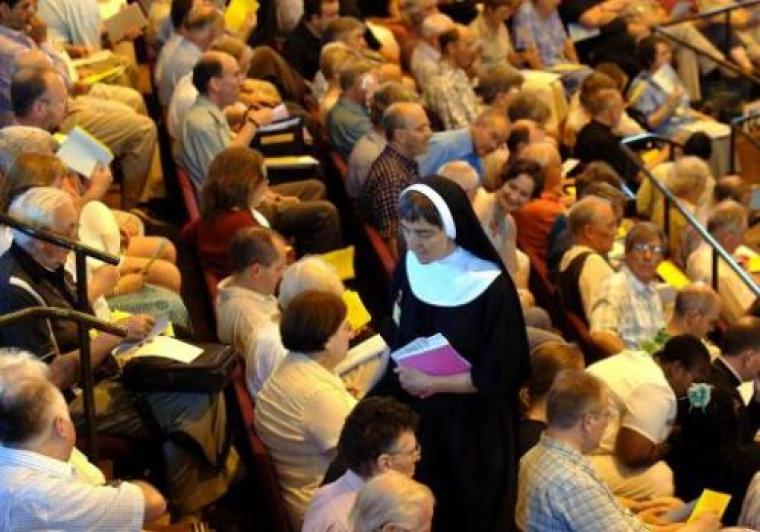
Synod members last met in November 2012, when the previous legislation failed to secure the requisite majority in all three Houses with a thin margin.
The Business Committee of the General Synod, which met earlier this week, has scheduled the debate for July 8.
While the proposals, backed by Archbishop of Canterbury Justin Welby and Archbishop of York John Sentamu, address concerns of traditionalists opposed to female clergy, they provide for all dioceses to have a bishop willing to ordain women.
The proposals accompany the publication of a report of a Working Group established in December to advise the House of Bishops.
The group's report calls for the Synod to reaffirm its commitment to admitting women to the episcopate as a matter of urgency, require the legislative process to begin in November so that it can be concluded in 2015 and specify that the legislation should be in the simplest possible form.
Bishop Nigel Stock, chairman of the working group, said the group's mandate reflected the House of Bishops' view "that new proposals would need both greater simplicity and a clear embodiment of the principle articulated by the 1998 Lambeth Conference that 'those who dissent from, as well as those who assent to, the ordination of women to the priesthood and episcopate are both loyal Anglicans.'"
Unanimity was not possible on drawing the limits of diversity "given the variety of strongly held views which exist and are maintained with integrity," Nigel said. "Nevertheless it is necessary to see whether there might be an approach which could command a sufficiently wide measure of assent to enable progress to be made… We are perhaps at a moment when the only way forward is one which makes it difficult for anyone to claim outright victory."
The denomination should retain "its defining characteristic of being a broad Church, capable of accommodating a wide range of theological conviction," Nigel added.
The Church of England approved women priests about two decades ago, but the issue of allowing women to be bishops has been divisive. Even if women bishops are allowed by legislation to be ordained as bishops, it might take up to three years for the first female bishop to be consecrated.